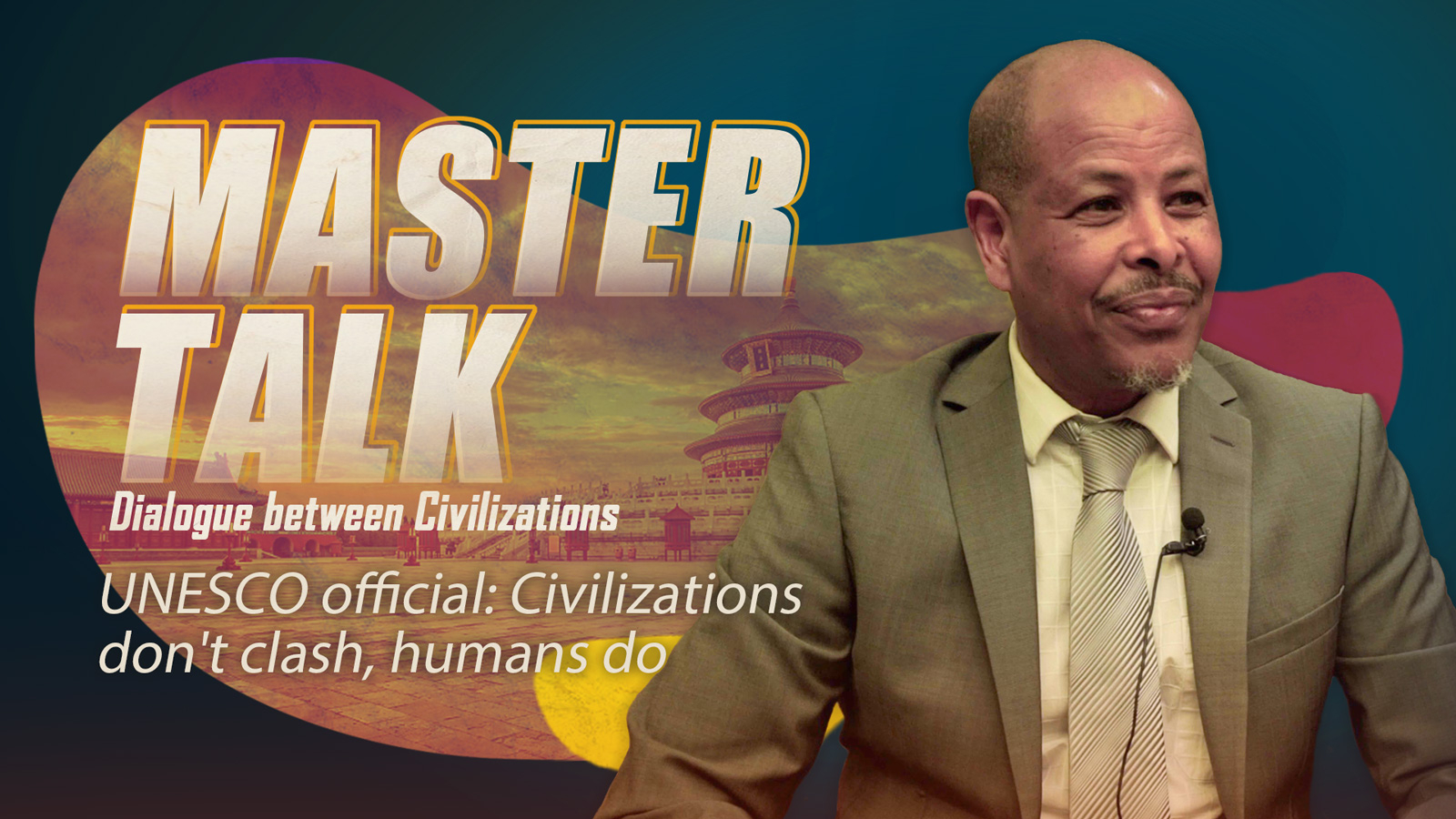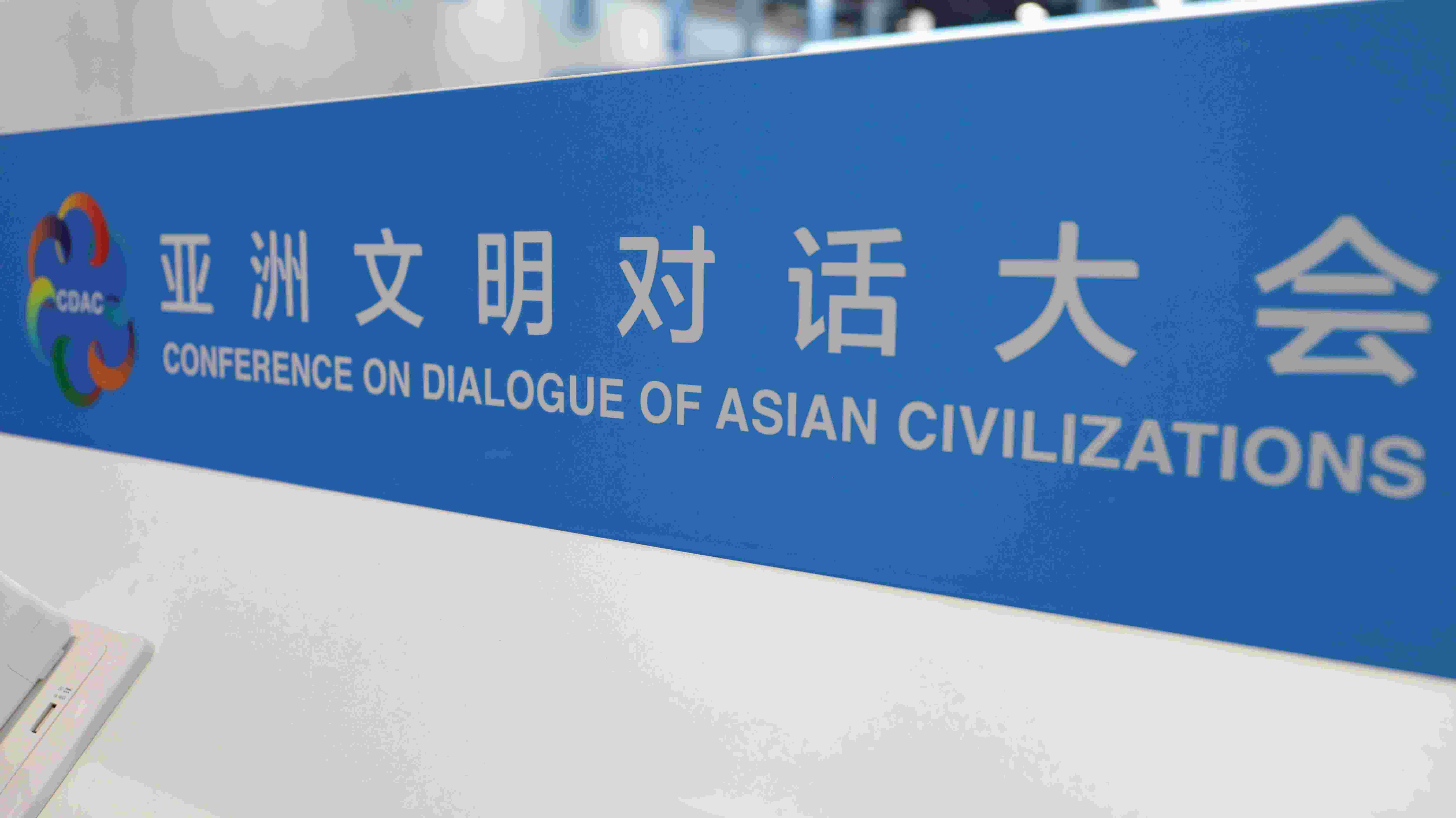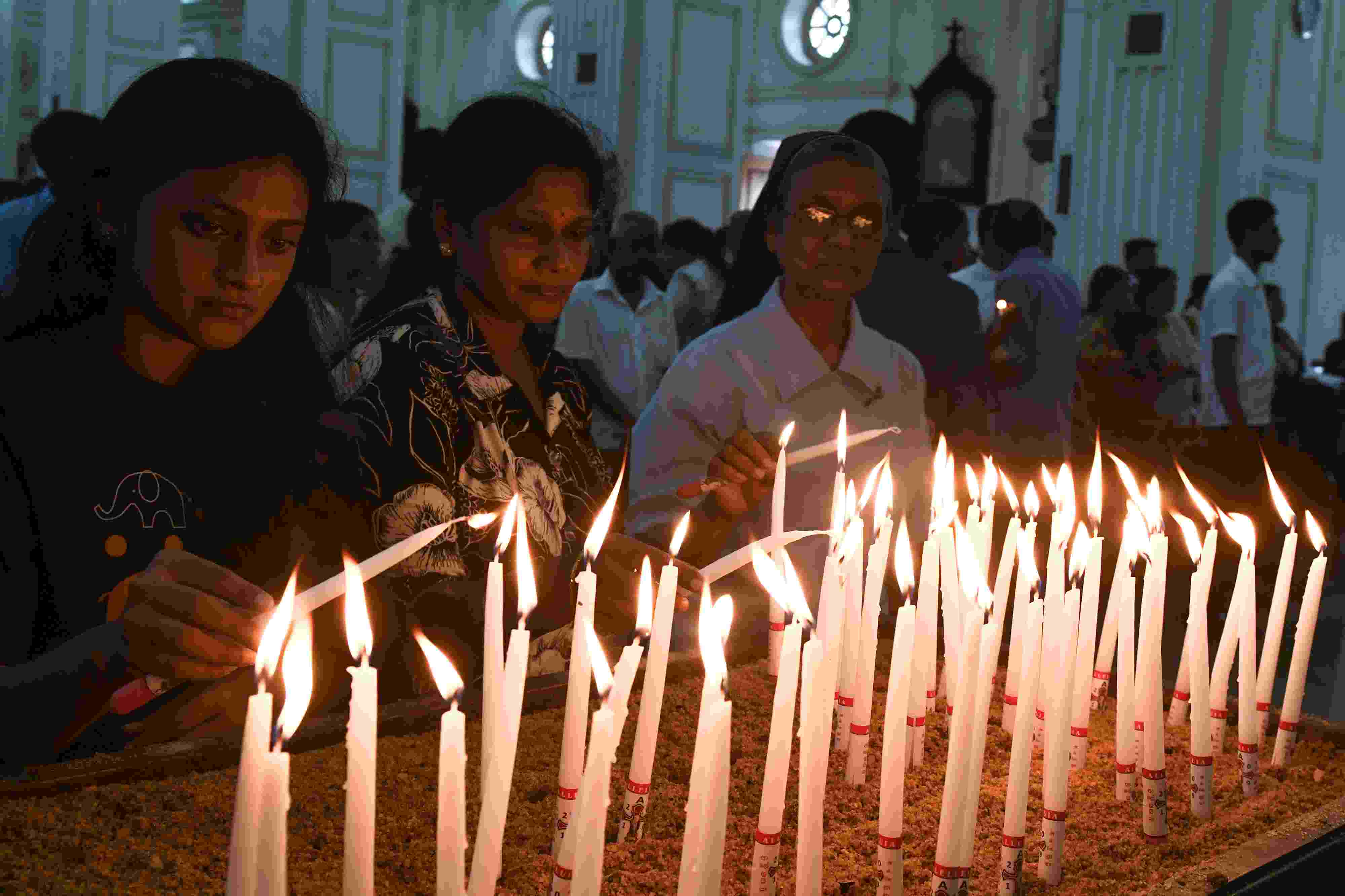
World
22:21, 15-May-2019
UNESCO official: Civilizations don't clash, humans do
Updated
17:06, 19-May-2019
By Wang Xiaonan
03:09

Must civilizations eventually clash? What role does collective memory play in culture? In an increasingly fragmented world, answers to these questions are not easy.
For insight into how civilizations can bridge the growing divide, CGTN reporter Wang Xiaonan talked to Ali Moussa Iye, Chief of the Section for History and Memory for Dialogue and International Coordinator for the Silk Roads of UNESCO. He was the moderator of the parallel panel "safeguarding the Diversity of Asian Civilizations," one of the six panels at the Conference on Dialogue of Asian Civilizations held Wednesday in Beijing.
CGTN: What are the most imminent threats to the existing world order that has remained stable for seven decades?
Ali Moussa Iye: The most imminent threats are prejudices and ignorance about other cultures and other people; another threat is a system only focusing on profits, which doesn't put human beings at the center. The ideology of dominating and exploiting others for resources constitutes a threat to the present-day international order.

CGTN Photo
CGTN Photo
CGTN: It seems there's a rise in hate incidents in recent years, with an increasing number of religiously-fueled hate crimes and terror attacks. Do you think cultural and religious intolerance can be ultimately overcome?
Ali Moussa Iye: Yes, we are witnessing a lot of hate speech and intolerance, which is a very dangerous trend. The way to fight against that is first of all education – knowing better about other cultures and also promoting tolerance and mutual understanding of people. We are trying to do it with different UNESCO programs, and the Silk Roads project that I'm leading is exactly to make people better understand what brings them together, instead of focusing on their differences.
We want to show through the history how different religions – Buddhism, Islam, Christianity – communicated with and shared and even borrowed from each other's values. By showing that we are trying to fight this intolerance and exclusiveness of some of the cultural thinking.
CGTN: Can the power of culture heal frictions and the fragmented global governance?
Ali Moussa Iye: Definitely, a culture is a tool for mutual understanding and collaboration. However, I think we should also not forget that sometimes the conflict comes from economic fronts. Competition for resources is also another source of conflict and misunderstanding.
But definitely, I agree that culture and education are key. That's why the UNESCO has culture and education as one of the main areas of competence to contribute to the development of tolerance and peace among different nations of the world.

The iconic view of Jerusalem's Old City from the Mount of Olives /Getty Images
The iconic view of Jerusalem's Old City from the Mount of Olives /Getty Images
CGTN: Since you are working for the History and Memory for Dialogue section in UNESCO, what role do you think memory plays in bringing us together?
Ali Moussa Iye: There were tragic moments in history. There were big moments of dialogue, but there were also tragic moments of war among nations. The history is to tell what happened really. The memory is to recognize the pain, the suffering of the history and to transcend that to develop new relationships with those whom we have problems with.
For us, history and memory are not in conflict. We need history; we need memory for the communities to live with and recognize what happened to transcend this better. History and memory can help bring people together and to build intercultural dialogue.
CGTN: Can Asian civilizations – with different languages, races and religions – unite to help heal the global governance fragmentation?
Ali Moussa Iye: Yes. I don't separate Asian civilizations from civilizations of the rest of the world. First, I have to remind that human beings come from the same origin, going from Africa to different countries, so there's already some commonalities in language and culture. Of course, the Asian civilizations have its particularities, which, however, are there not to separate each other but on the contrary to enrich each other, because, beyond the diversity, we have commonalities. So the duality is there – the diversity on the one hand and commonality on the other.

Sri Lankan Christian devotees light candles at St Lucia's Cathedral during a holy mass held to bless the victims of Easter Sunday attacks in Colombo, May 11, 2019. /Getty Images
Sri Lankan Christian devotees light candles at St Lucia's Cathedral during a holy mass held to bless the victims of Easter Sunday attacks in Colombo, May 11, 2019. /Getty Images
All these issues will be discussed at the conference: how we can reconcile the promotion of our own particularities while sharing our values with other nations is a big challenge. So conferences like this dialogue help understand this challenge and provide effective solutions.
CGTN: Is Samuel Huntington's theory of Clash of Civilizations still relevant given the rise in hate crimes and populist movements over the years?
Ali Moussa Iye: The idea that different civilizations are bound to clash is the most stupid I have ever heard. Civilizations don't clash. It is human beings that clash. Even in the case where countries are fighting, the cultures of these countries exchange and interact. Civilization is about communication and exchange. The war came from the government, the military and people who have power, but not civilization. The clash of civilization is an ideology to justify domination but has nothing to do with historical reality.
Videographer and video editor: Wu Chutian

SITEMAP
Copyright © 2018 CGTN. Beijing ICP prepared NO.16065310-3
Copyright © 2018 CGTN. Beijing ICP prepared NO.16065310-3